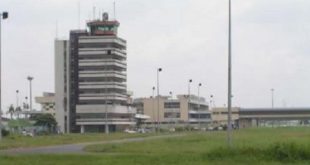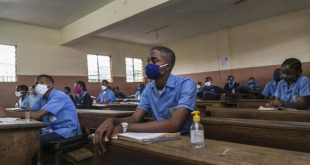The Africa Report | The world’s leading credit rating agency has downgraded Cameroon’s sovereign rating by six points, a steeper downgrade than that by Moody’s two weeks earlier.
Standard and Poor’s (S&P) downgraded Cameroon’s long- and short-term foreign currency sovereign rating by six notches on 8 August, from B-/B (highly speculative) to the SD/SD (partial default) category.
This was rather expected, given Moody’s decision 10 days earlier. The latter credit rating agency lowering Cameroon’s rating by two notches, from B2 (very speculative) to Caa1 (high risk).
The reasons given by the rating agencies are the same: the country experienced delays in settling its bilateral debt (principal and interest) to Deutsche Bank d’Espagne, between January and November 2022. Other non-commercial creditors also suffered from this default.
These delays lasted for two weeks on average, and sometimes 18 days while the tolerance threshold is five days after the due date.
High risk
For S&P, the country’s domestic debt could suffer the same fate, “in the absence of improved cash and debt management practices”. For this reason, it has downgraded its local currency rating from B-/B to CCC+/C (high risk), with a stable outlook.
This is partly due to its status as a hydrocarbon producer. In a way, Cameroon has been the victim of a scissors effect.
High oil and gas prices have certainly had a beneficial effect on budget revenues, but the import bill for refined petroleum products soared due to the cessation of refining at the country’s only industrial unit in 2019.
With fuel prices frozen, the government was obliged to compensate traders CFA900bn, double the budgeted amount.
In February, Yaoundé decided to increase prices at the pump to bring the fuel subsidy down to CFA450bn. But the volatility of world prices has led to fears of “further price slippages”, to which should be added the “fiscal shock” from neighbouring Nigeria.
President Bola Tinubu’s decision to abolish the fuel subsidy is certainly drastically reducing smuggling, but at the same time it is causing inflation in the northern border regions of Cameroon, “which could lead to political pressure on the authorities to compensate households and businesses affected by the increase”, fears S&P.
Security shock
In addition to this constraint linked to hydrocarbons, which account for almost 15% of government revenue, there is also the security crisis, particularly in the English-speaking regions of the north and southwest, which are fertile ground for separatist movements.
This has led to “unforeseen expenditures through cash advances” from the Société Nationale des Hydrocarbures (SNH), expenditures amounting to around 10% of the total for the past year, representing a slippage in excess of the 4% agreed with the IMF.
“These factors put pressure on liquidity throughout the year and contributed to payment delays,” the agency said.
The country is therefore urged to avoid further setbacks in meeting its repayment deadlines for bilateral commercial debt. An official from the ministry of finance recently said Cameroon is honouring its debt repayments.
However, the agency urges caution: “We believe tight financing conditions, high inflation, volatile oil prices, and security threats could continue to put pressure on the government’s liquidity position.”
Cameroon will be examined again on 29 September, but its situation is unlikely to improve. According to the AU, countries on the continent take an average of seven years to regain their lost rating.
 CameroonOnline.org Cameroon news, Actualité Camerounaise, live Web TV & Radio, World News and a lot more
CameroonOnline.org Cameroon news, Actualité Camerounaise, live Web TV & Radio, World News and a lot more



